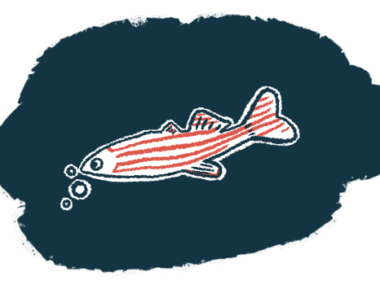Mexican Day of the Dead Helps Us Joyfully Remember Loved Ones
The holiday is celebrated each year at the start of November
Written by |

Right about now, most people in the U.S. are preparing for Halloween by buying candy for trick-or-treaters, making costume alterations, and planning parties.
That’s all fun, but since childhood, I’ve been drawn toward a different holiday: el Día de los Muertos, or Day of the Dead. Sometimes mistakenly associated with Halloween celebrations, this Mexican holiday, which takes place Nov. 1-2, honors the memories of loved ones who have passed.
It may sound spooky, but it’s actually a joyful celebration. Spirits are believed to return from the land of the dead to visit their living family members, who welcome them with offerings of food and other favorite things. According to the History Channel, “It’s an occasion for remembering and celebrating those who have passed on from this world, while at the same time portraying death in a more positive light, as a natural part of the human experience.”
For me and many others in the SMA community, death is not only natural but familiar. So many of us are given short life expectancies at the time of diagnosis, and because of our fragile health, brushes with death are not uncommon throughout our lives. For some, mortality may be something we encounter often enough that we don’t fear it.
Sadness and loss
Sadly, it’s not just our own mortality that we’re acquainted with. The sorrow of losing a loved one with SMA is also familiar. In May, I wrote about this hardship and the blessing of friendship, even when it’s short-lived.
At the time, my mind was on my friend Jack, and I couldn’t have fathomed that the next loss I’d experience in the SMA community would be my beautiful cousin, who passed away shortly after.
Although it breaks our hearts when loved ones pass on from this world, their departures don’t mean they’re no longer a part of our lives. We carry our memories of them and can reminisce with others who knew them or share stories of their lives with those who didn’t. They continue to affect us even though they aren’t here physically.
Remembering departed loved ones is something that brings comfort to ALS News Today columnist Juliet Taylor, who lost her husband, Jeff, to ALS two years ago. In a recent column titled, “Remembering Helps Me Be More ‘OK’ on Tough Days,” Juliet writes about how it helps her to be reminded of Jeff and their lives together.
She also shares a conversation she had with another friend with ALS, who feared she would be forgotten after she passed. Juliet says she was shocked by this: “How could she imagine ever being forgotten? How could she not know how much she meant to so many, that her memory would remain a north star for hundreds, maybe thousands of people?”
Celebrate and rejoice
I wonder if holidays like el Día de los Muertos and other remembrance days are important not only for those of us who celebrate them here on earth, but also perhaps for those who fear they will be forgotten when they’re gone. Perhaps the knowledge that we will dedicate specific dates and times to honor our loved ones might help put people at ease about the future.
I don’t know if we can really be visited by the spirits of our loved ones on el Día de los Muertos, or any other day, but I do believe in eternal life after death. The reassurance that the separation from our loved ones is not permanent is reason to celebrate and rejoice.
Regardless of the beliefs we hold, el Día de los Muertos offers us great wisdom on life, death, and remembrance. It reminds us to seek beauty and joy in life and death, keep cherished memories alive, and celebrate the gift of life with those we love.
I’ll always miss my loved ones who have passed away. But despite that sadness, I’m grateful to have been a part of their lives and have the privilege of sharing memories. Until we meet again, I’ll always find joy and comfort in remembering them. I hope that you do, too, with your own loved ones.
“Our love for each other will live on forever/ In every beat of my proud corazón.” —”Proud Corazón,” from Disney’s “Coco”
Note: SMA News Today is strictly a news and information website about the disease. It does not provide medical advice, diagnosis, or treatment. This content is not intended to be a substitute for professional medical advice, diagnosis, or treatment. Always seek the advice of your physician or other qualified health provider with any questions you may have regarding a medical condition. Never disregard professional medical advice or delay in seeking it because of something you have read on this website. The opinions expressed in this column are not those of SMA News Today or its parent company, Bionews, and are intended to spark discussion about issues pertaining to spinal muscular atrophy.





Leave a comment
Fill in the required fields to post. Your email address will not be published.